
Serpentine Gallery Pavilions over the years
The 2009 Serpentine Gallery Pavilion designed by Japanese designers SANAA opens to the public in London tomorrow. Here we present a quick guide to all the Serpentine Gallery Pavilions (including the 2003 incarnation, above, by Brazilian architect Oscar Niemeyer) since the series was inaugurated in 2000. Update: this project is included in Dezeen Book of Ideas, which is on sale now for £12.
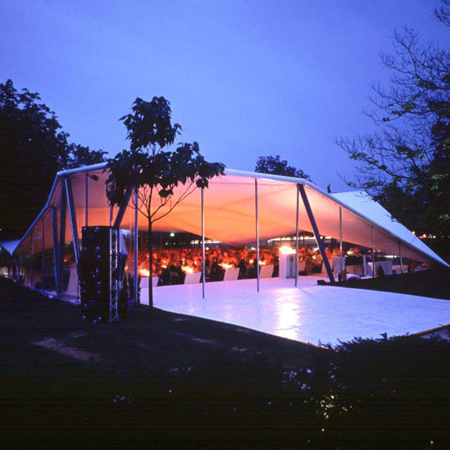
In 2000, Zaha Hadid was the first architect invited to design a temporary summer pavilion for the lawns in front of the Serpentine Gallery in Kensington Gardens, London. Her design was a fabric-clad, triangulated steel frame structure (above). See all our stories about Zaha Hadid.
Each year since then, the gallery has invited a leading international architect who has not built in England before to design a pavilion. Photo © 2007 Dafydd Jones. Top image Photo © 2007 Richard Bryant.
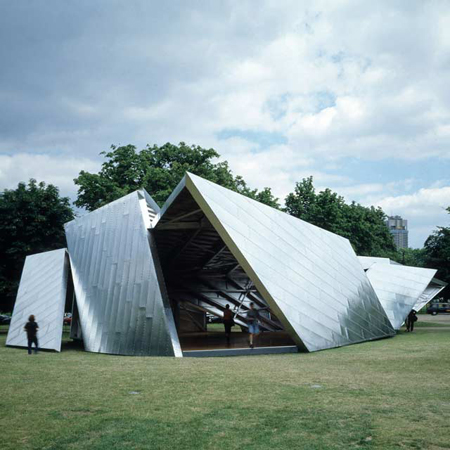
In 2001, Daniel Libeskind presented Eighteen Turns (above), a series of aluminium panels with folds that made reference to origami. Photo © 2007 Hélène Binet
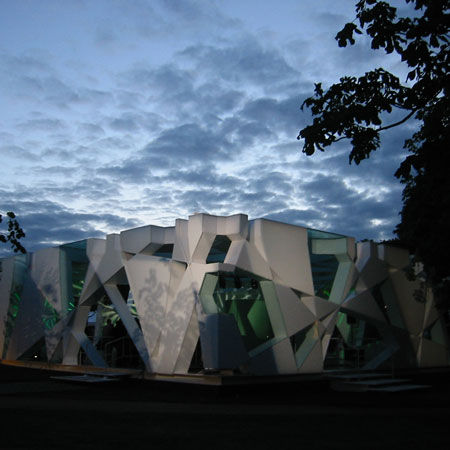
Japanese architect Toyo Ito's 2002 pavilion used a random pattern of triangles and trapezoids that was derived from the algorithm of a cube that expanded as it rotated. Photo © 2007 Deborah Bullen.
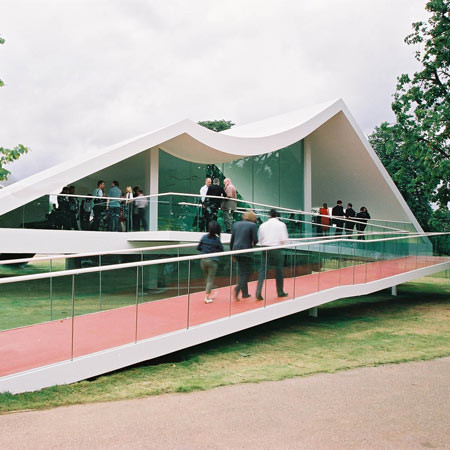
The Serpentine Gallery Pavilion 2003 (above) by Brazilian architect Oscar Niemeyer was made from steel, aluminium, concrete and glass, with a red ramp and partly submerged auditorium. Photo © 2007 Richard Bryant
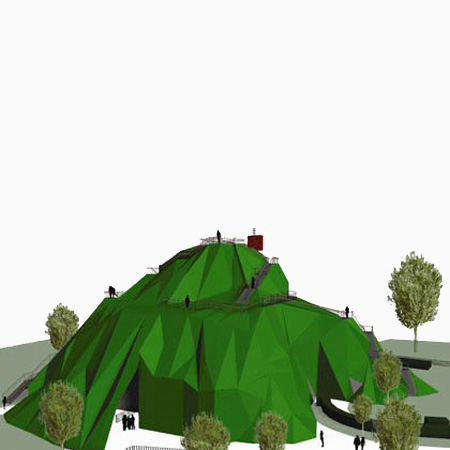
The series skipped a year in 2004, as the proposed design by Dutch architects MVRDV (above) proved too complex to build.
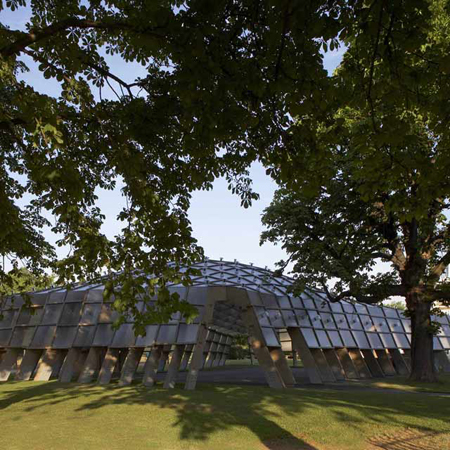
In 2005, Portuguese architects Álvaro Siza and Eduardo Souto de Moura teamed up with engineer Cecil Balmond of Arup, producing a design based on a distorted rectangular grid and constructed from a series of interlocking timber beams. Photo © 2007 Richard Bryant/arcaid.co.uk
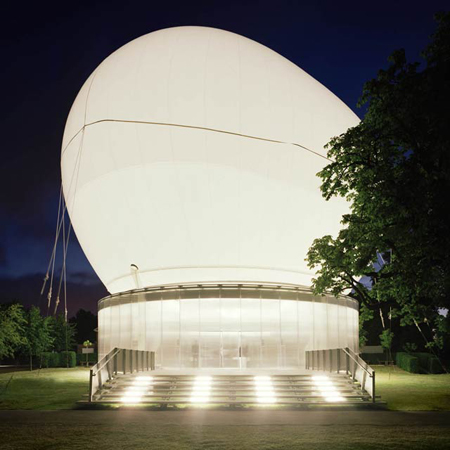
Dutch architect Rem Koolhaas teamed up with engineer Cecil Balmond of Arup to design the 2006 pavilion (above). A translucent circular space was topped with a giant balloon that could be raised and lowered according to the weather. See all our stories about Rem Koolhaas. Photo © John Offenbach
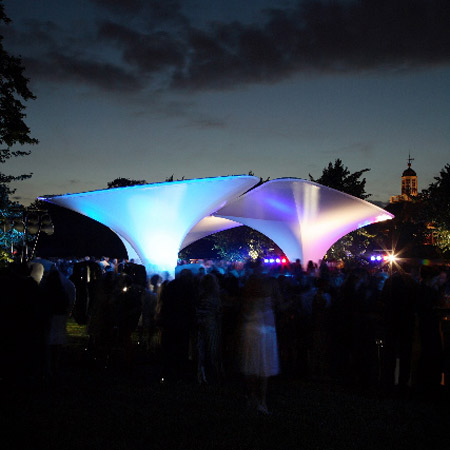
In 2007 there were two pavilions. Zaha Hadid returned with an installation of three fabric-claed forms called Lilas (above). More info and images in our story from 2007. See all our stories about Zaha Hadid.
Lilas was commissioned to host the Serpentine's annual summer party due to construction delays on the pavilion proper, designed by artist Olafur Eliasson and architect Kjetil Thorsen of Snøhetta (below). Above photograph © Luke Hayes
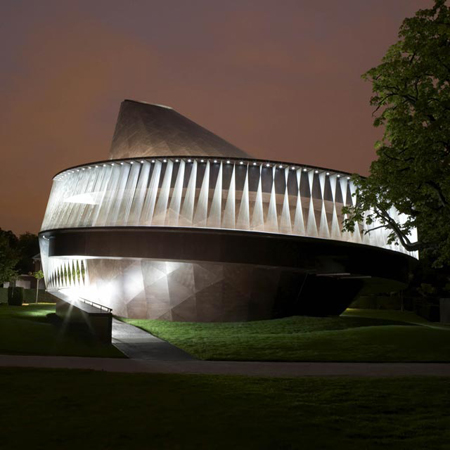
Opening a little late for the summer party, the spinning top-shaped 2007 pavilion was designed by artist Olafur Eliasson and Norwegian architect Kjetil Thorsen, of the architectural practice Snøhetta. More info and images in our story from 2007. Photograph © 2007 Luke Hayes
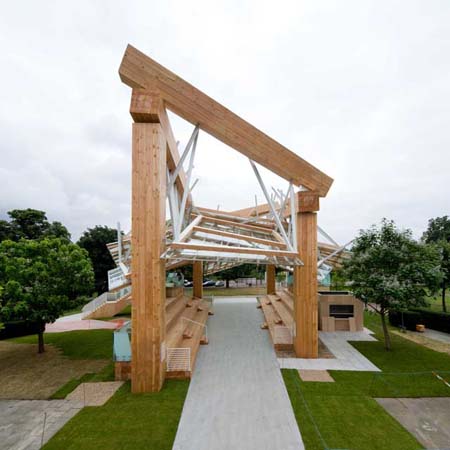
The 2008 pavilion (above) was designed by architect Frank Gehry. It consisted of four timber-clad steel columns, large timber planks and overlapping glass planes. More info and images in our story from last year. Photo © Iwan Baan
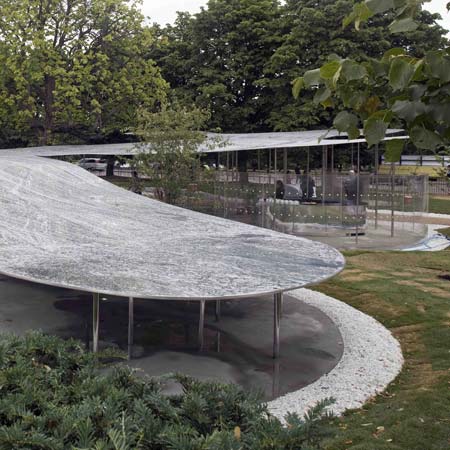
This year's pavilion (above) is designed by Japanese duo Kazuyo Sejima and Ryue Nishizawa of SANAA. It is made of aluminium faced plywood floating on a series of thin stainless steel columns. More info in our earlier story. Photo © Luke Hayes